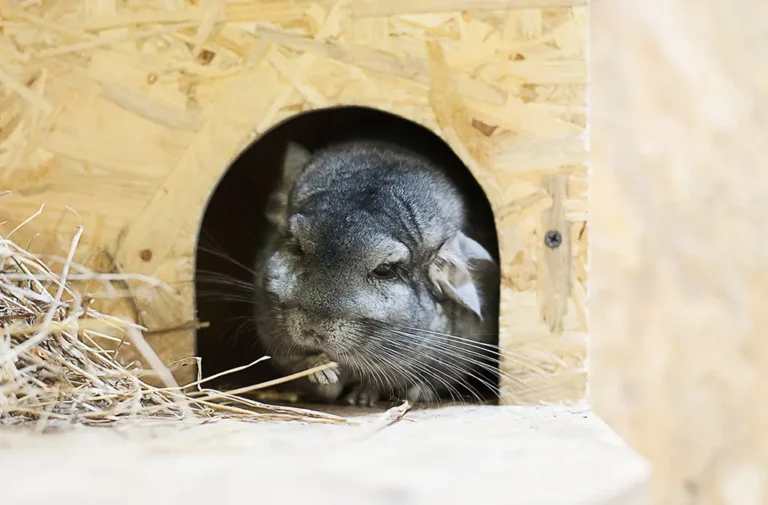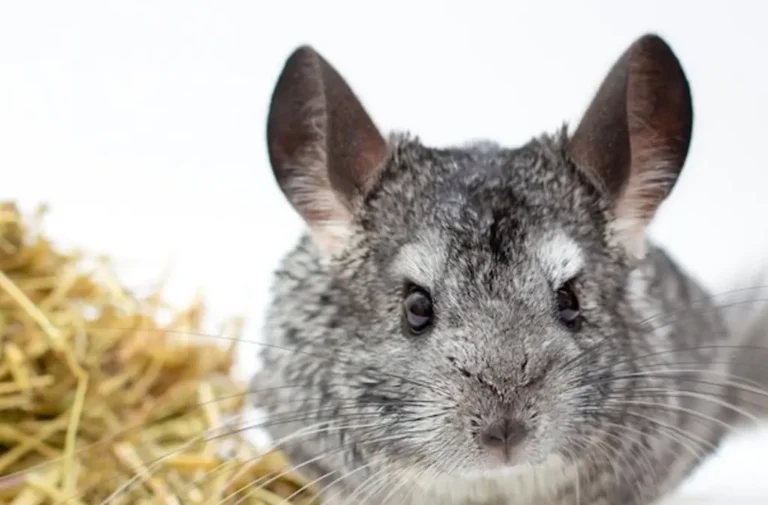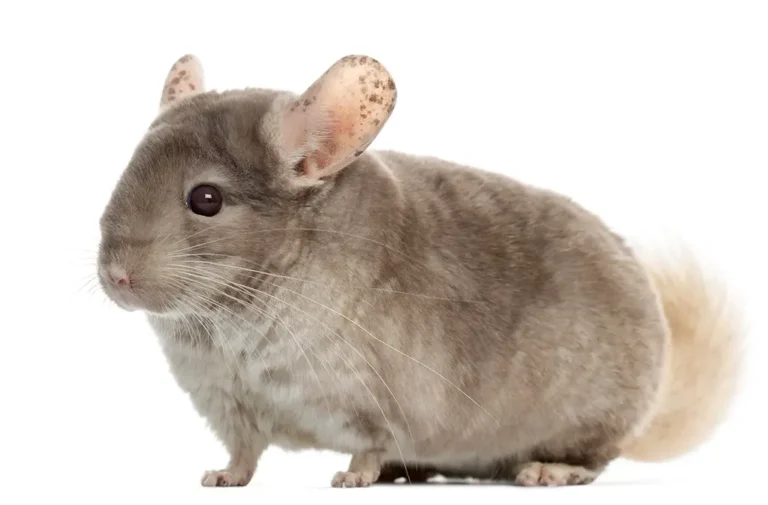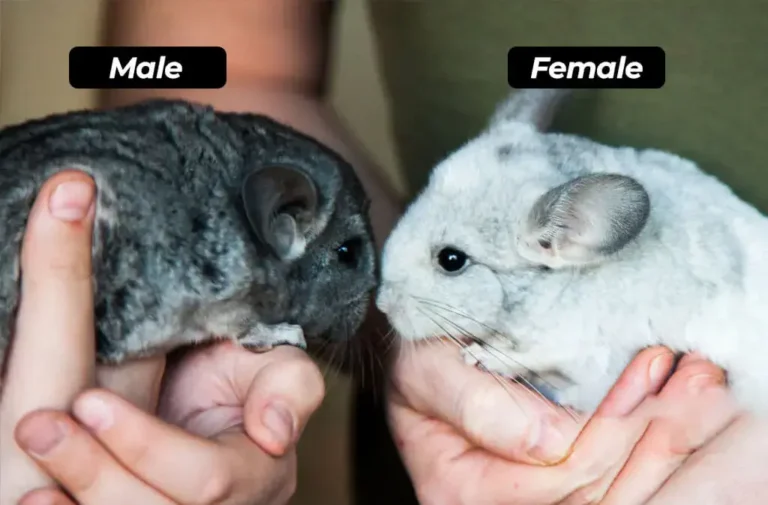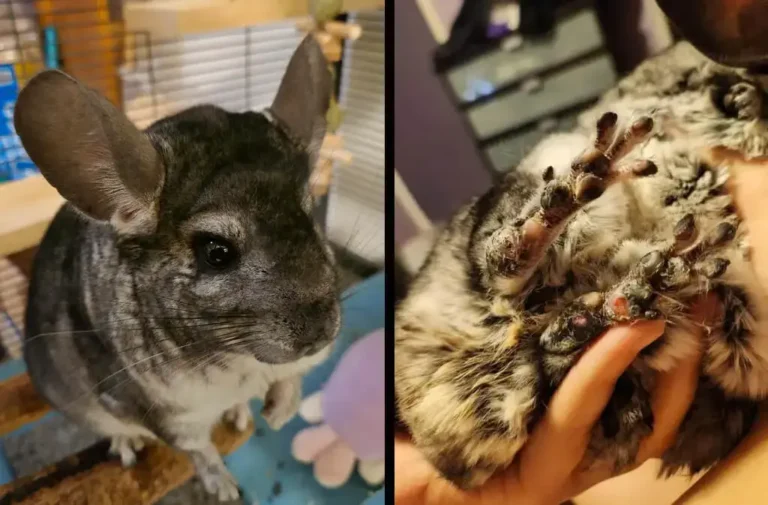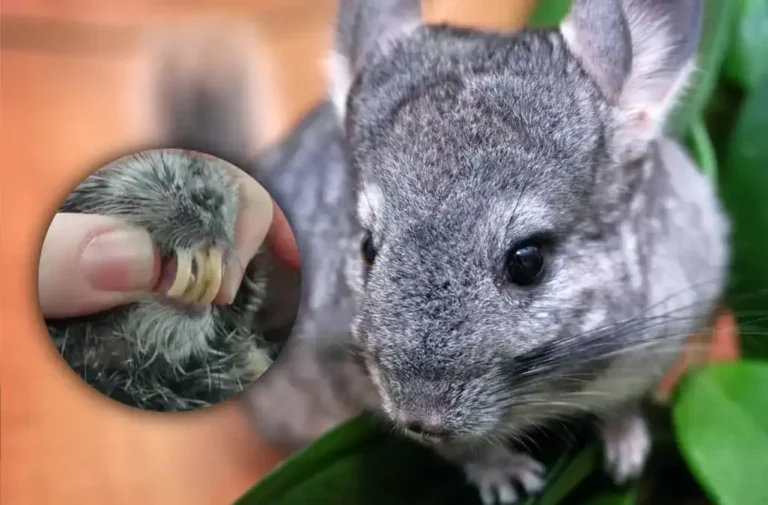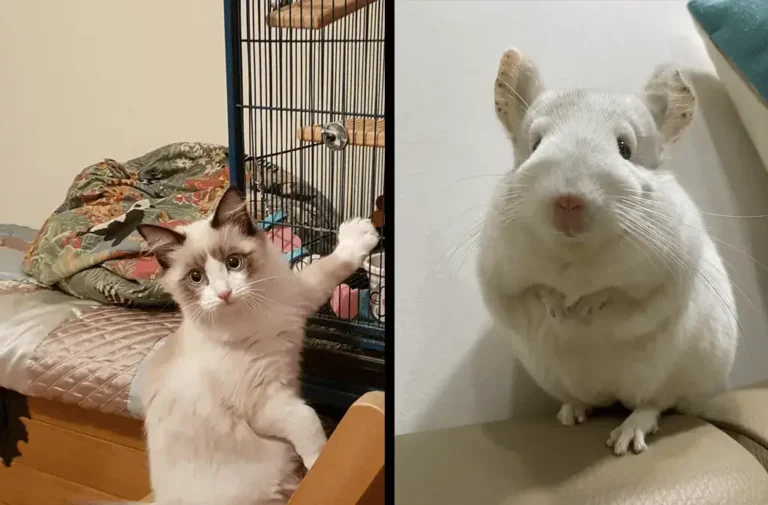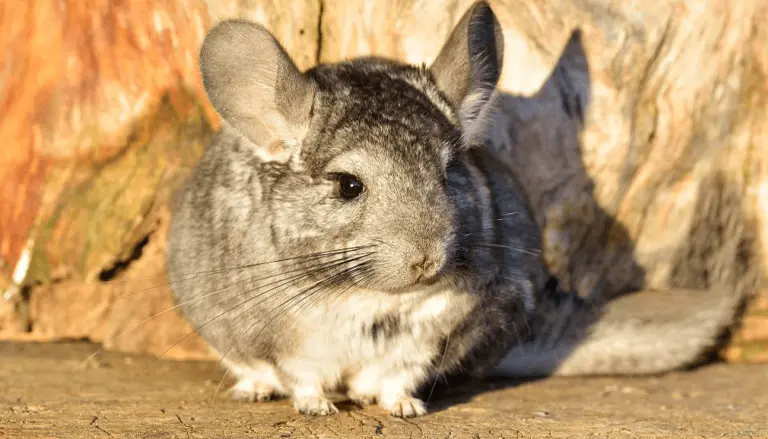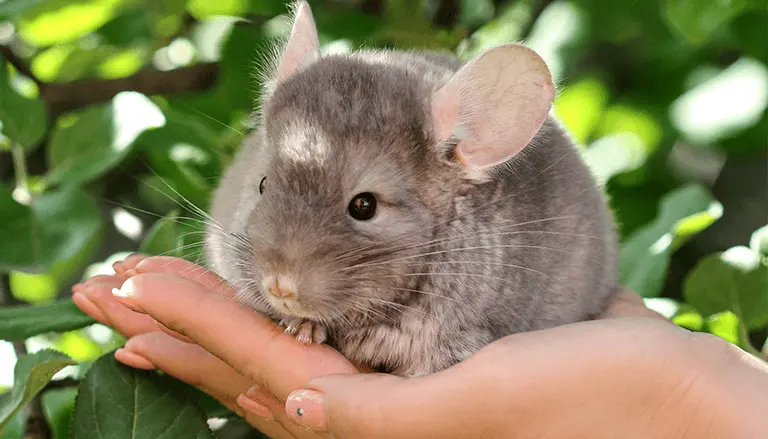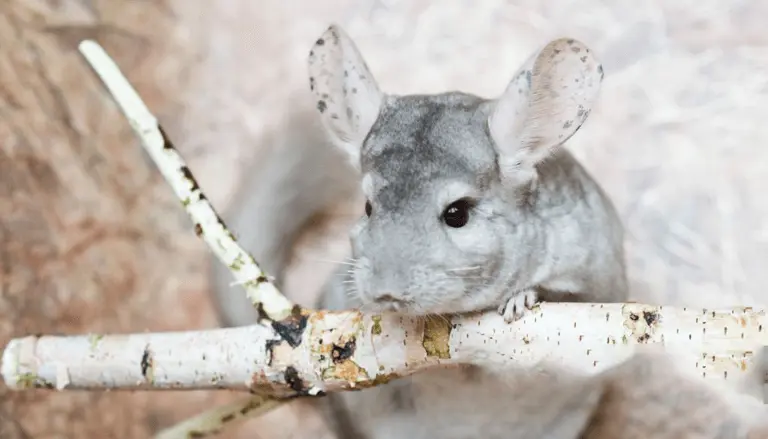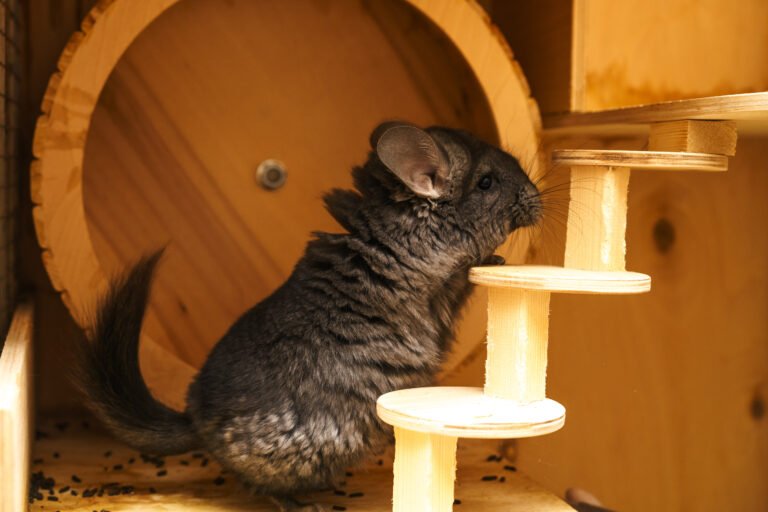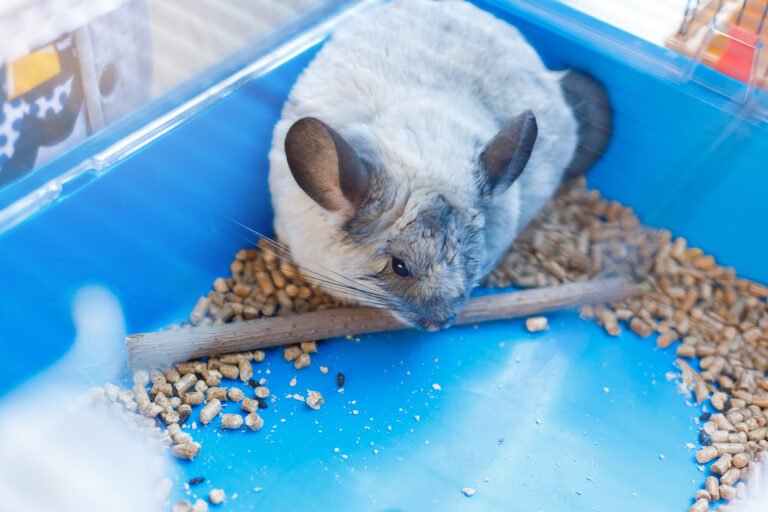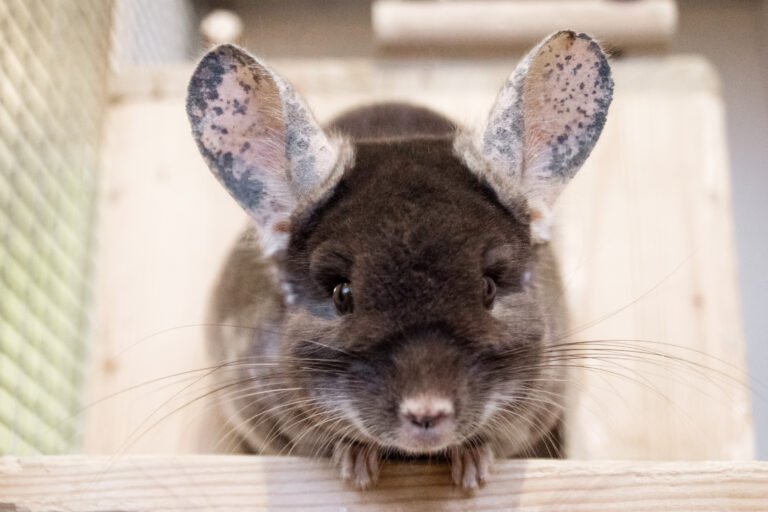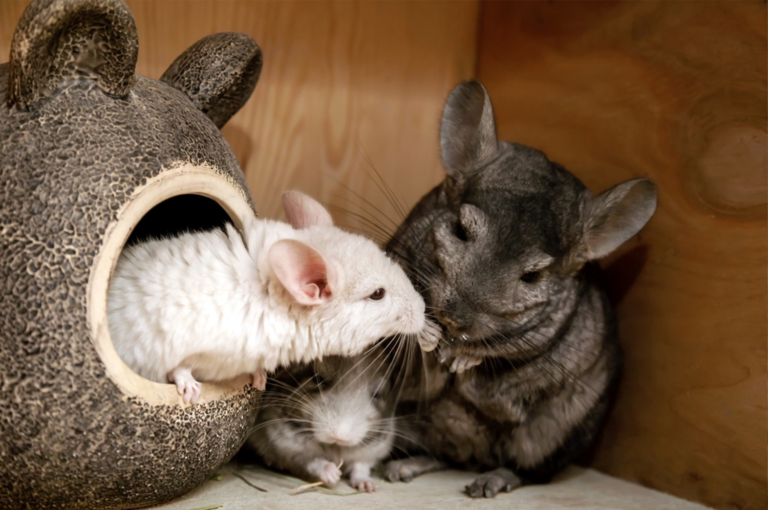A Comprehensive Guide To Determine Chinchilla Dying Symptoms
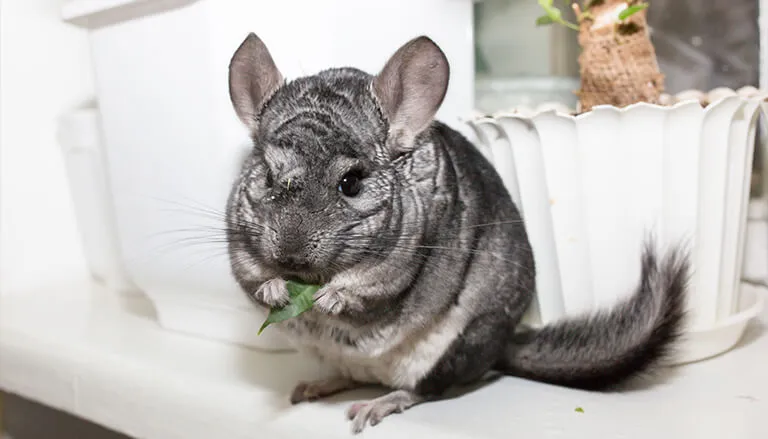
Chinchillas are cute little rodents that have been great pets for more than a decade. They live relatively longer than other rodents. They can generally live for about fifteen—to twenty ye, ars, but their longevity depends on how you look after them. These little creatures are sensitive rodents that are susceptible to different illnesses.
Do you know they can also hide diseases that remain unnoticed for longer? Therefore, as a responsible caregiver, you must give them proper care and determine the chinchilla dying symptoms. Your little fluff ball suffers some life-threatening symptoms that are beyond our control. Knowing about their dying signs will help you recognize when your little companion needs medical treatment. Let’s move forward and understand the methods to identify their dying signs.
10 Methods To Identify Chinchilla Dying Symptoms
If you are protective or concerned about the Chinchilla health of your little companion, you should learn the methods below to ensure their well-being.
1. Behavioral Changes
The most important and primary sign is behavioral changes, which show that something is not right with these fluff balls. It is advised to notice their behavior regularly, such as aggressiveness, lethargy, and laziness. Observe them closely and pay attention to any significant change that could be a sign of discomfort and pain.
2. Appetite Loss
It is advised to examine your little companion’s eating habits. These rodents have delicate digestive systems and are herbivores. Eating less than usual makes them inactive. Therefore, it is better to observe their eating habits. Appetite loss could also be caused by severe dental problems. They can exhibit an abrupt decrease in appetite as a result of gastrointestinal problems or other underlying medical concerns.
3. Respiratory Discomfort
Respiratory issues are a significant concern that could lead your little companion to life-threatening complications. It is advised not to leave respiratory issues untreated but to take them to a veterinarian instantly. The environment where they live is the cause of this discomfort. The symptoms of respiratory discomfort include:
- Difficulty Breathing
- Wheezing
- Nasal Discharge
- Audible Breathing
- Sounds
4. Dental Issues
Chinchillas are rodents prone to dental issues. Their teeth continuously grow, so they need chewy toys for tooth health. Enlarged teeth could result in different diseases, such as malocclusion or misalignment. It is advised to provide them with chewy toys and observe their teeth, which are generally orange.

5. Diarrhea/Constipation
Diarrhea or constipation is another dying symptom of chinchilla. Gastrointestinal issues result in severe illness, such as loose stools. In addition, a straining bowel movement indicates intestinal blockage and digestive problems. It is recommended that the animal be brought to the vet promptly to avoid dehydration and other potential issues.
6. Lethargy/Weakness
Sometimes, chinchillas don’t respond as usual and suddenly become weak or dull. In such situations, they might experience serious health issues. Weakness and laziness could be the sign of different health issues, such as skin allergies, infections, and metabolic disorders. If you observe laziness and lethargy, take them to the veterinarian. Observing them closely is better to ensure their health and well-being.
8. Less Water Intake
It is advised to check the water bottles regularly to ensure the well-being of these little companions. Checking their water bottles regularly will allow you to examine their daily water consumption. Consuming less water than usual could result in dehydration, leading to fatigue and loss of activity.
9. Skin & Fur Issues
The fur of these little fluffs is very dense, thick, glossy, and soft. It is better to keep your little pet protected from water. Water baths could result in severe infections and allergies. These skin infection could affect their fur and create bald patches. Protect them from moisture to keep their fur in good condition.
10. Isolation
Isolation and loneliness indicate another chinchilla dying symptoms. Chinchillas are social animals and stay happy in the company of their fellows. Isolation is not a disease, but sadness could lead to a shorter lifespan. It is advised to socialize your little companion and feed them with your hand.
Final Verdict!
Adorable little balls of fluff, chinchillas make wonderful pets. In addition to being cute and cuddly companions, they can have illnesses that take longer to manifest. Being a responsible caregiver of these little companions, it is essential to identify the chinchilla dying symptoms. Understanding these signs will help you to give them a better life. Their different dying signs include appetite loss, isolation, respiratory discomfort, skin & fur issues, heat stroke, lethargy, weakness, and diarrhea.

